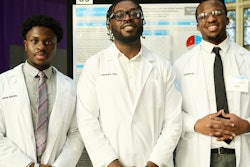University of Kentucky researchers secured a $4.2 million grant Monday to look for ways to prevent training injuries among elite U.S. military members. It’s part of a new campus initiative to reduce injuries from athletic fields to military training fields.
UK’s team will work directly with the Marines’ special operations command, university officials said. The Defense Department grant will back research to help optimize performance among those elite forces. The goal is to help them during military service and enable them to lead healthy, productive lives after their time in the military, UK officials said.
Service members “say they want to be able to play ball with their kids, and because of what we do, when they retire they’re going to be able to do so,” UK President Eli Capilouto said at the announcement in Lexington. “This work will help support the brave souls on the front line … who defend our country.”
Military training injuries are often similar to those sustained by athletes, including torn ACLs, rotator cuff injuries, lower back pain, shoulder dislocation and ankle sprains, school officials said.
The award is the largest ever received by UK’s College of Health Sciences, campus officials said.
It coincides with the establishment of the UK Sports Science Research Institute on the university’s Lexington campus.
The scientific center will focus on ways to prevent and treat sports injuries and concussions. Other goals include optimizing sports performance and improving musculoskeletal health and rehabilitation. The institute is scheduled for completion next summer.
The state’s flagship university is adding eight new faculty members to work with the sports science institute. Some of the faculty will work at the Marines’ special operations command lab at Camp Lejeune in North Carolina, UK officials said.
Researchers will identify common injury patterns among Marines during the demanding training. In turn, they’ll develop clinical trials to test training programs targeted at injury prevention, officials said. Musculoskeletal injuries are common during training.
“These Marines are training to become small teams of elite warriors expected to be at peak performance in extremely dangerous and unpredictable situations,” said Scott Lephart, dean of UK’s College of Health Sciences.
“There is absolutely no room for sustaining preventable injuries that marginalize their safety and their effectiveness,” he added.
Lephart launched multiple military-related research projects while at the University of Pittsburgh and now has brought such research to UK.
Research at UK’s new sports science center will have much broader applications. Its mission includes looking for ways to prevent and treat injuries among athletes, as well as focusing on ways to help special-needs children and the elderly lead active lives, researchers said.


















